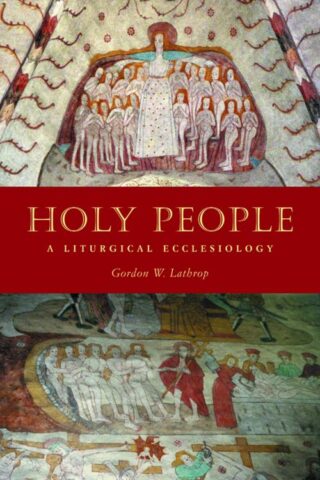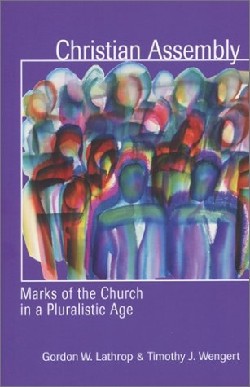Gordon Lathrop
Showing all 2 results
-
Holy People : A Liturgical Ecclesiology
$29.00Add to cartIntroduction: Liturgical Ecclesiology And Its Importance
PART ONE: A People-Church In Liturgical Perspective
*Assembly
*With All, In Every Place
*The Practice Of AssemblyPART TWO: One People – Liturgy And Church Unity
*Knowing Something Together
*Unity And Liturgical Pattern
*The Practice Of UnityPART THREE: Holy People – Liturgical Assemblies And Earth’s Peoples
*Assembly, Baptism, And Culture
*Assembly, Eucharist, And Culture
*The Practice Of HolinessAppendixes
IndexesAdditional Info
This sequel to Gordon Lathrop’s highly successful Holy Things is an exercise in liturgical theology, viewing the activities of worship as a means of defining and discussing the concept “church.” It centers on community and assembly to discuss the sacraments. It focuses on ecumenism and inculturation as central test cases for a liturgically derived idea of church.In hopes of invigorating the local church, Lathrop explores the meaning of the term “church,” the relationship of the local liturgical assembly and other Christian assemblies (catholicity); the personal and communal character of liturgical assembly; the unity of the churches; the critical principles of liturgy and culture; openness to what is radically other; and liturgical evangelization. Lathrop’s work grounds a notion of church that is personal yet communal, universal, but not triumphalistic.
-
Christian Assembly : Marks Of The Church In A Pluralistic Age
$24.00Add to cartWhat is church? What makes the church one? While these questions may seem innocuous, church has become conflicted territory, with internal factions, external pressures, and ecumenical turmoil all calling for a more positive, sturdy, more resilient notion of Christian community.
Wengert approaches the questions as a Reformation historian. He shows how the New Testament notion of ”marks” of the church was taken up by Martin Luther and developed by Phillip Melanchthon not as a descriptive tag but as a criterion for authenticity in Christian community. Lathrop, a liturgical theologian, shows concretely how those marks can stamp the worship life of a congregation as well as the evaluative work of congregations with their pastors, bishops, superintendents, and conference ministers.


